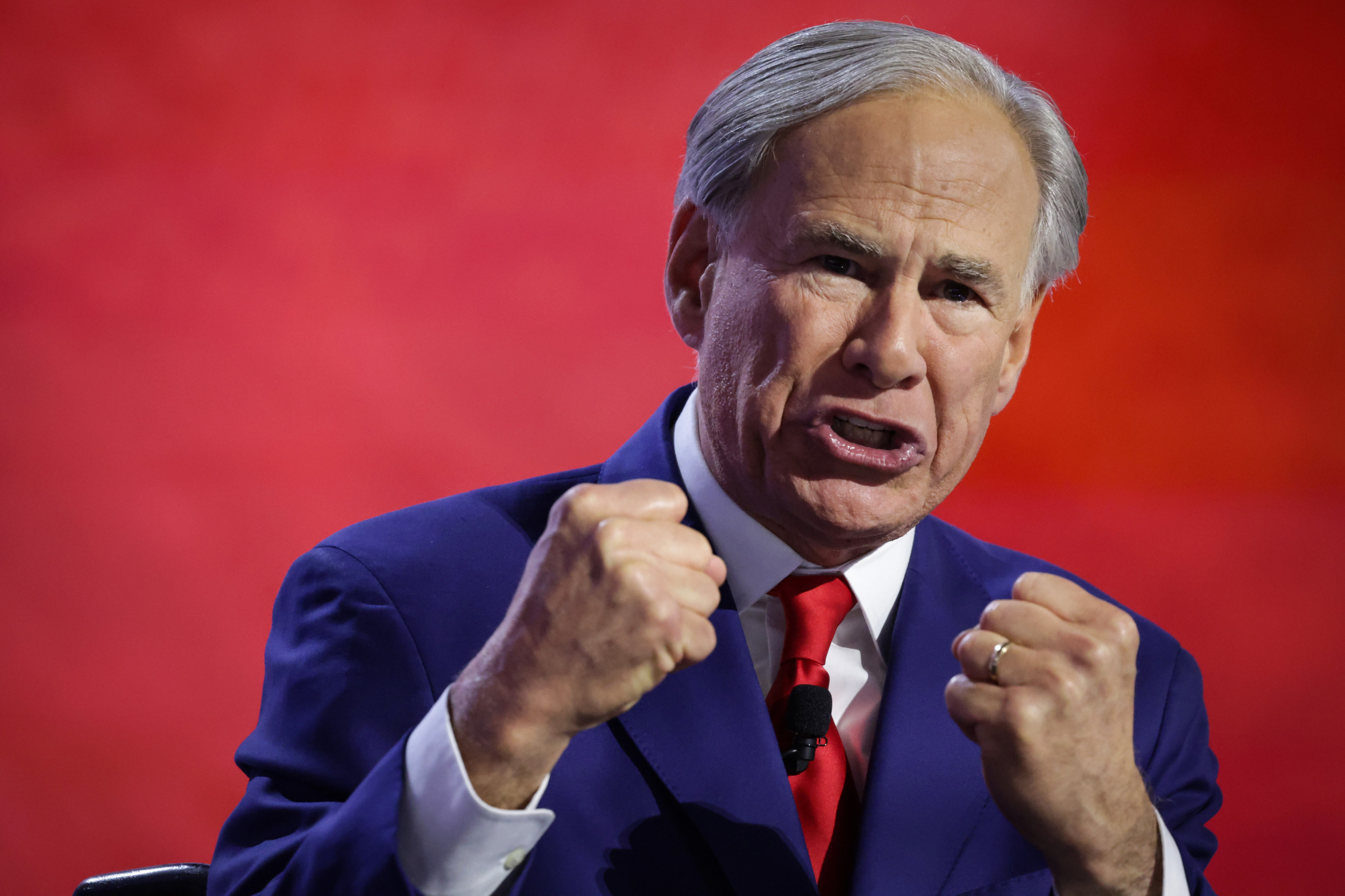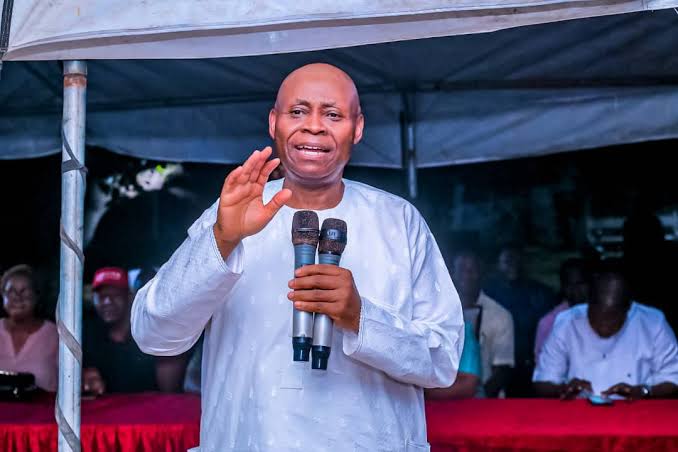Greg Abbott’s War on China
Texas Governor Greg Abbott has in recent weeks taken a number of steps to curb what he sees as hostile interference in his state by the Chinese government and affiliated groups, issuing three executive orders between November 18 and 20.
The United States has a tense relationship with China, which by some distance possesses the second-largest economy in the world. Washington and Beijing have clashed over trade, human rights and the sovereignty of Taiwan and the South China Sea, sparking fears of open war between the superpowers.
Mark P. Jones, an expert in Texas politics who teaches at Rice University in Houston, told Newsweek that Abbott was seeking to “safeguard Texans from potential Chinese government threats” and hoping to “score political points” by being tough on Beijing.
On November 18, Abbott issued an executive order “targeting Chinese communist party’s harassment of Texans.” It instructed the Texas Department of Public Safety to “identify and charge individuals suspected of crimes relating to exploiting dissidents on behalf of any foreign government.”
Alex Wong/GETTY
In an accompanying statement, the governor said: “Texas will not tolerate the harassment or coercion of the more than 250,000 individuals of Chinese descent who legally call Texas home by the Chinese Communist Party or its heinous proxies.”
Chinese Embassy spokesperson Liu Pengyu denied his government targets political opponents in Texas, telling Newsweek: “The Chinese government abides by international law and fully respects other countries’ sovereignty in law enforcement. There is no such thing as harassment or coercion targeting the so-called ‘dissidents.'”
Newsweek contacted Abbott’s press office for comment via email on Tuesday outside of regular office hours.
On November 19, Abbott issued a second executive order “hardening state government from the Chinese Communist Party.” It requires any company that makes a bid to a Texas state agency of public institution of higher education to “certify that none of its holding companies or subsidiaries is owned by a foreign adversary government.”
It also introduced stricter background checks for state employees working around critical infrastructure and banned them from accepting gifts from “foreign adversary countries.”
The U.S. government currently defines “foreign adversary countries” as China, Cuba, Iran, North Korea, Russia and “Venezuelan politician Nicolas Maduro.”
This was followed on November 20 by a third executive order “protecting critical infrastructure from the Chinese Communist Party.” A task force will be created to “survey potential vulnerabilities of state and local governments” while cyberattacks will be simulated on key aspects of the Texas economy.
On November 21, Abbott wrote to Texas state agencies instructing them to “divest at the first available opportunity” from any current investment of state funds in China, and ensure no new ones are made.
Jones said that Abbott has genuine security concerns regarding China and is seeking to appeal to Republican primary voters.
“Abbott’s motives are rooted both in a desire to safeguard Texans from potential Chinese government threats and to score political points for being seen as tough on China,” he said. “Republican primary voters continue to be the most influential voting group in Texas, since they control who wins the GOP primary where most Texas political leaders have their ticket to Austin punched in a state where an absolute majority of the seats in the Texas Legislature are in safe Republican districts and no Democrat has won a statewide race since 1994. And Republican primary voters overwhelmingly appreciate and support Abbott’s tough on China policies.
“Abbott’s tough-on-China policy is a triple win for the governor: It combats the legitimate threats represented by China, it burnishes his conservative and patriotic credentials among Texas Republican primary voters and general election voters, and it places Abbott in the vanguard of American elected officials working to safeguard the country from potential CCP threats.”
Abbott has previously spoken out about what he perceives as growing Chinese influence in Latin America.
During a Fox Business appearance in July, the governor said: “China is really coming in and changing the attitudes now of Central and South American countries.
“You’re familiar with what China is trying to set up in Cuba. They’re trying to set up similar operations both in Mexico as well as in Central and South America.”
James Henson, the executive director of the University of Texas at Austin’s Texas Politics Project, told Newsweek that Abbott’s actions “reflect widespread policy concerns.”
However, he also said they “reflect the degree to which national politics have increasingly shaped state-level politics,” noting that in 2023 legislation concerning foreign property ownership in Texas was “proposed and debated” because of similar concerns. “I expect we’ll see still more attention to the subject in the next legislative session, which begins in January,” he added.
Joshua Blank, research director at the Texas Politics Project, agreed that Abbott’s motives are a mixture of real security concerns and politics.
“While there are no doubt real security concerns about Chinese influence in the U.S., China also makes for an easy political target, especially after COVID and the propagation of the belief, largely harbored among the political right, that the Chinese government was culpable if not outright responsible for the global pandemic,” he told Newsweek.
“In addition to the more recent attention, China remains the United States’ largest global competitor, and largest communist government in the world—two factors clearly at play when China becomes a target of state-level politicians like Governor Abbott.
“Abbott is unlikely to receive much pushback from within his party in response to tough talk and actions against the Chinese state and, in some cases, its people. December 2023 University of Texas/Texas Politics Project polling found 76 percent of Republicans holding a negative view of China, along with 77 percent of self-identified conservatives, and 89 percent of the most conservative voters in the state—all key groups in Abbott’s next political contest, the Republican [gubernatorial] primary in 2026.”








